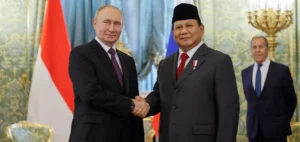Colombian President Gustavo Petro has ordered the total suspension of coal exports to Israel, with no exceptions for existing contracts. This new decree, stricter than the one adopted in 2024, aims to block any future transaction. Petro accuses his officials of bypassing his instructions and has mobilized the Colombian navy to physically prevent shipments to Israel.
Marginal energy impact for Israel
The practical effect of this decision on Israel’s supply remains limited. Coal occupies a declining share in Israel’s energy mix, increasingly replaced by natural gas from the Tamar and Leviathan offshore fields as well as renewables. Colombia, despite being Latin America’s largest coal producer, represents only a secondary supplier for Israel. The embargo therefore neither affects the country’s energy security nor the stability of its electricity infrastructure.
A weakened coal industry in Colombia
In Colombia, the measure comes in an unfavorable context for the coal industry. Exports, estimated at nearly $7 billion in 2023, have already fallen by half due to declining global prices and rising Indonesian competition. The ban targeting Israel has only a marginal impact on volumes but increases regulatory uncertainty and feeds the perception of politicization in the sector. Local mining unions emphasize that presidential decisions weigh more on market confidence than on real demand.
Anti-Americanism as a diplomatic axis
This decision is part of the rupture strategy Petro has pursued since taking office. By targeting Israel, he indirectly challenges the United States, Israel’s main military and strategic ally, and seeks to position Colombia within the Global South. This orientation allows him to promote an anti-imperialist narrative that strengthens his domestic electoral base. According to observers, the initiative is more about symbolic diplomacy than energy policy. It feeds his communication strategy by rallying his base with a simplified narrative tailored to their reach.
Shadows in the presidential trajectory
Petro’s trajectory continues to raise questions. A former member of the M-19 armed movement, he is accused of diverting attention from Colombia’s economic and social difficulties with high-profile international initiatives. According to some local investigations, suspicions exist around irregular political financing, and analysts mention possible indirect ramifications with cartel-linked structures, which remain influential in Colombia’s informal economy. These allegations, not officially proven, nevertheless fuel distrust and reinforce the idea that the president’s international stance serves his domestic balance as much as his diplomatic ambitions.
The manipulation of figures and the instrumentalization of the conflict
The Israeli-Palestinian conflict provides the framework for this strategy. The Hamas attack of October 7, 2023, which killed 1,219 people in Israel, triggered a retaliation that Gaza’s Ministry of Health – an organ under Hamas control – claims caused more than 63,000 deaths. These figures, considered “reliable” by some international bodies, are nevertheless disputed due to their origin and political use. From a demographic perspective, Gaza’s population, estimated at 2.2 million before the conflict, continues to grow despite the hostilities, raising questions about the relevance of the term “genocide” often invoked.
Israel, for its part, maintains energy security based on domestic gas resources and an active diversification of its mix. Petro’s decision, presented as an act of international solidarity, appears more as a diplomatic communication maneuver. It illustrates how some actors outside the conflict seek to place themselves at the center of the global debate, at the cost of mixing energy diplomacy with political calculations, mobilizing questionable data and rallying their electoral base through a simplified narrative.






















